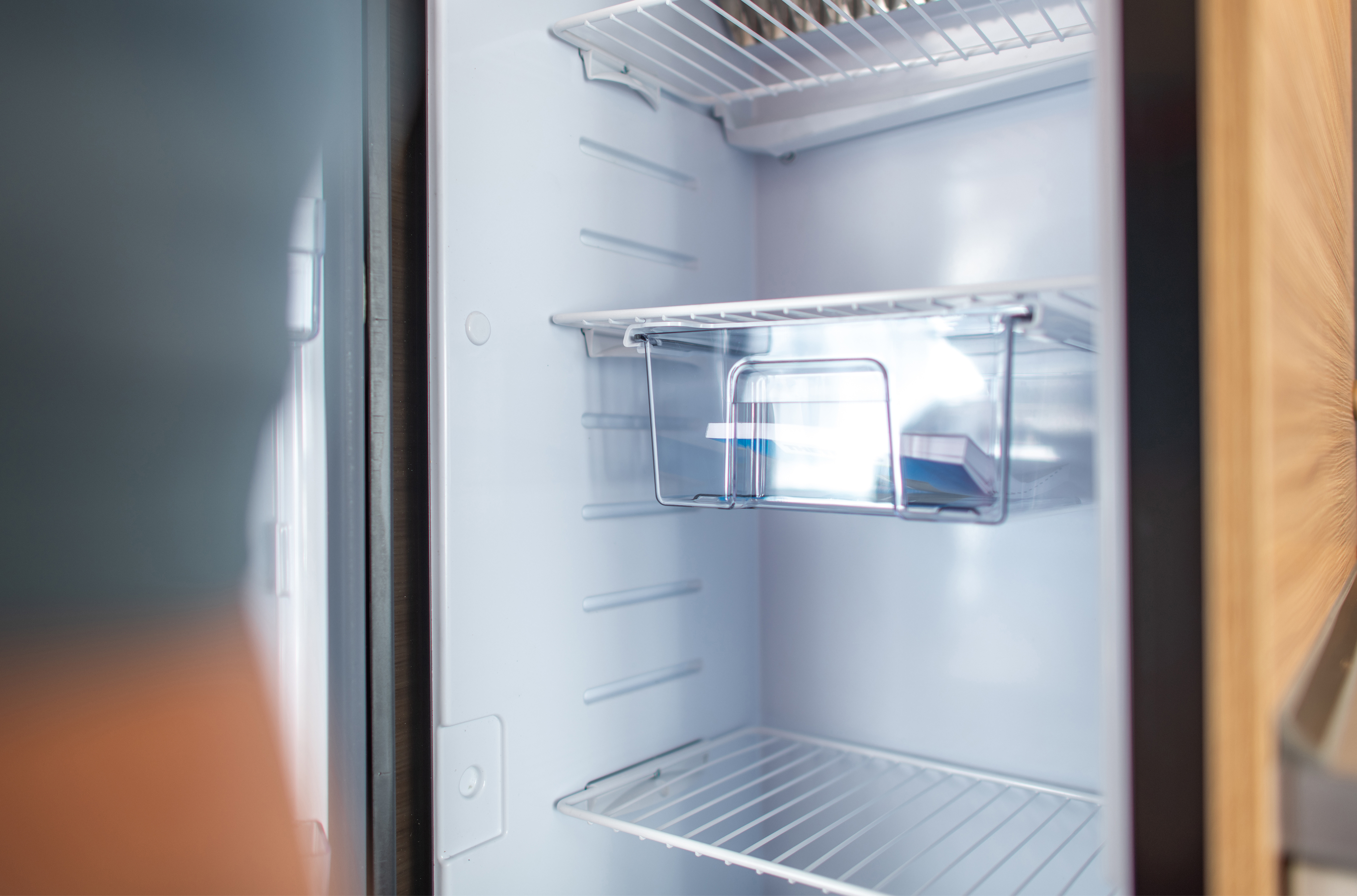RV Refrigeration Repair
Having an RV is akin to possessing the wings of freedom with the snugness of a home rolled into one. Among the myriad comforts it offers, the refrigerator is a standout—keeping your beverages cool and your food fresh, whether you’re in the stark expanse of a desert or perched on a serene mountain. But, what happens when this essential appliance hits a snag? Let’s dive into the world of RV refrigeration repair with a human touch.
The Heart of RV Refrigeration Repair
Why fuss over RV refrigeration repair?
Picture this: You’re parked in an idyllic location, far from the hustle and bustle, with the sunset casting a glorious palette across the sky. You reach for a cold drink, only to find your fridge has given up on you. Beyond just ruining a perfect moment, a functioning RV fridge is crucial to prevent your food from spoiling, especially on extended journeys.

Household vs. RV Fridges: What’s the difference?
At home, a fridge breakdown might mean a temporary shift to takeout meals or borrowing some space in a neighbor’s fridge. On the road, though, you’re pretty much on your own. Here’s the interesting part: RV fridges operate differently from the ones in your kitchen. While most home refrigerators use compressors, RV models typically rely on absorption technology. This involves using a heat source, often propane or electricity, and a mix of chemicals like ammonia to achieve cooling.
Navigating Common RV Refrigeration Repair Hiccups
Dealing with power issues
Electricity is the lifeblood of your RV’s appliances. Yet, the constant movement, bumps, and uneven terrains can mess with your RV’s electrical connections.
Quick fix: If your fridge won’t turn on, start by inspecting the circuit breakers, fuses, and the plug itself.
Tackling leaks
Stumbling upon a puddle near your fridge can be alarming. It might be due to condensation, a clogged drain tube, or worse, a coolant leak.
DIY solution: For issues like condensation or a blocked tube, make sure the fridge door seals properly and clear any obstructions in the drain tube.
Addressing cooling woes
Sometimes, your fridge might be running, but it’s just not cold enough.
Signs you need to act:
- Frost Build-Up: A bit of frost is normal, but excessive frost suggests a temperature imbalance.
- Strange Noises: Unusual sounds could indicate problems with the cooling unit or fans.
- Warm Interior: If the fridge feels more room temperature than cool, the cooling unit might be failing.
General solution: Check the ventilation. Make sure nothing is blocking the exterior vents of the fridge.
Preventative Measures for Peace of Mind
Regular maintenance checks
Just like we need regular health check-ups, your RV fridge benefits from periodic inspections.
Maintenance advice: Always park your RV level to avoid compromising the refrigerator’s efficiency and longevity.
Smart usage matters
How you use your fridge can impact its performance and lifespan.
Usage tip: Chill your food and drinks before placing them in the fridge. This helps keep the internal temperature stable.
DIY vs. Professional Help: Making the Right Call
When to DIY
If you’re comfortable with tools and have a basic understanding of appliance mechanics, you might be inclined to tackle RV refrigeration repair yourself. Proceed with caution, though.
The upside of professional help
A professional can swiftly pinpoint problems, have the right parts on hand, and offer a guarantee for their work.
Insider advice: Even if you’re confident in your DIY skills, having a professional review your work can save you headaches down the line.
The Bottom Line on RV Refrigeration Repair
Embarking on RV adventures is about embracing freedom, exploration, and the joy of the open road. A well-functioning refrigerator ensures you can relish these experiences without the worry of food spoilage or settling for warm drinks. By getting to know your RV fridge, understanding common issues, and learning how to address them, you’re not just enhancing your RV ownership experience—you’re ensuring that the journey remains the highlight, not the hiccups along the way.
FAQs Quick Hits
- Fridge coils check-up frequency: Twice a year should do it.
- Average lifespan of an RV fridge: With proper care, 10-15 years.
- Running the fridge on propane while driving: It’s possible, but prioritize safety and adhere to local laws.
- Using household fridge parts for RV refrigeration repair: Stick to RV-specific parts for best results.
- Impact of varying climates: Extreme temperatures can affect performance. Monitor internal temperatures and adjust settings as needed.
